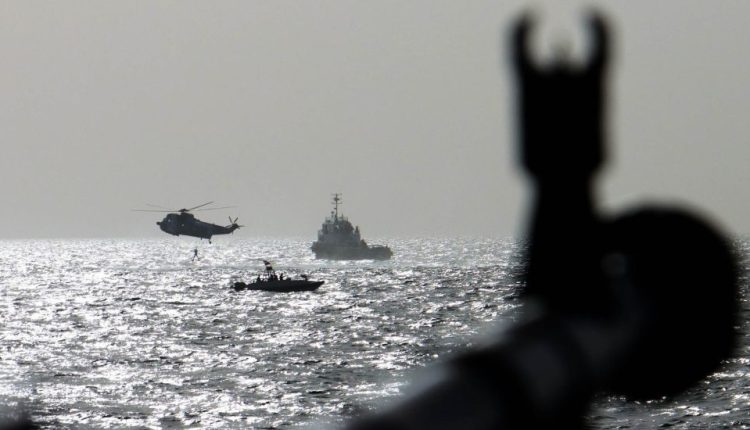Sea News – The announcement of a ceasefire between Israel and Hamas has once again drawn attention to the geopolitical significance of the Red Sea. This strategic waterway plays a vital role in connecting the Indian Ocean to the Mediterranean via the Suez Canal and serves as a key route for trade between Asia, Europe, and North America. However, recent regional developments have brought about fundamental changes in this route, potentially shifting the balance of power in favor of countries aligned with the Axis of Resistance.
Ansarullah Movement in Yemen and Maritime Security: A Display of Strength Against Hegemony
The Ansarullah Movement in Yemen (commonly known as the Houthis), backed by widespread public support and aligned with the regional Axis of Resistance, has emerged from being a local player to a decisive force in ensuring security in the Red Sea. Over the past year, they have carried out several targeted operations against ships associated with the Zionist regime and its allies.
These operations, primarily utilizing drones, missiles, and unmanned boats, sent a clear message to the global community: the Red Sea is no longer an unrestricted playground for foreign powers.
These actions were in response to the continued aggressions of the Zionist regime in Gaza and other parts of Palestine, successfully drawing global attention to the legitimacy of Yemen’s resistance against such violations. Ansarullah demonstrated that control over this strategic waterway is not exclusively in the hands of global powers but can also rest with the nations of the region.
For instance, the significant diversion of trade routes away from the Red Sea and the Suez Canal due to Houthi attacks has dealt a severe blow to Egypt’s economy. The 75% reduction in container ship traffic through the Suez Canal in 2024, coupled with a 60% drop in revenues from this critical waterway, has created profound economic challenges for Cairo. This situation underscores the reality that securing this route cannot be achieved without considering the interests of regional players.
This evolving scenario presents an opportunity for the Axis of Resistance to strengthen regional cooperation and solidify its position in international trade routes.
Iran and Yemen: Strategic Potential in the Red Sea
Iran and Yemen are uniquely positioned to play pivotal roles in ensuring the security of the Red Sea, especially under current conditions. Iran, as a maritime power in the Persian Gulf and the Gulf of Oman, possesses extensive experience and capabilities in monitoring and securing such waterways. Additionally, Yemen, with its long coastline along the Red Sea, holds the potential to oversee maritime traffic and ensure the safety of this strategic waterway.
Despite efforts by the United States and Europe to secure the Red Sea through the deployment of warships, the reality is that stability in this route cannot be guaranteed without engagement with regional countries. Lasting security will only be achieved when the interests of the region’s nations are considered in decision-making processes.
Iran’s Role in Securing Trade and Shipping Routes
In recent years, the Islamic Republic of Iran has consistently worked to ensure the security of trade routes in the Persian Gulf and the Gulf of Oman. In response to growing maritime threats in these areas, Iran, through its naval forces—particularly the Islamic Revolutionary Guard Corps Navy—and regional cooperation, has successfully enhanced the level of security in regional waters.
Moreover, Iran can leverage its experience in safeguarding shipping in the Persian Gulf, including preventive measures, monitoring maritime transport, and establishing new shipping lines with neighboring countries, to play a significant role in restoring peace and security to this strategic waterway.
Regional Cooperation: A Path to Sustainable Security
In light of recent developments, regional cooperation remains paramount for securing this critical waterway. Undoubtedly, Iran and Yemen, by utilizing their strategic positions and collaborating with other allied countries, can contribute to redefining maritime and security norms in the Red Sea. Strengthening maritime capabilities, fostering regional partnerships, and creating a joint security framework to oversee and secure ship traffic in these waterways will be crucial.
Ultimately, the Red Sea should be recognized as a region of cooperation and sustainable security—a region that, instead of becoming a battlefield for conflict, evolves into a hub for economic and trade development among regional and global nations.

